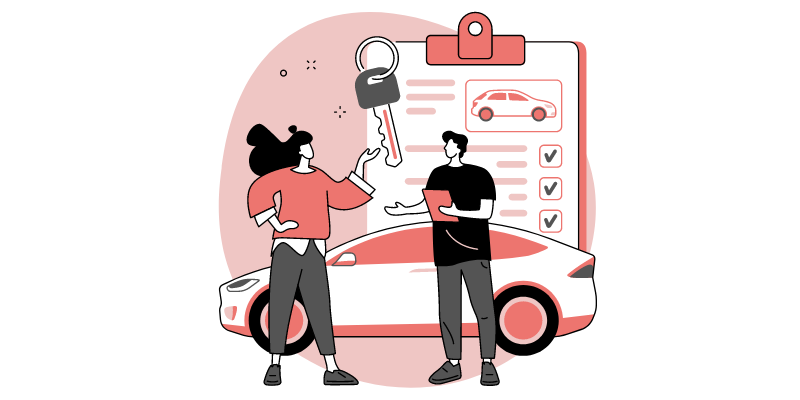CARIFY car subscriptions are the flexible all-inclusive alternative to leasing: a single monthly fee covers all the costs associated with your dream car, including repairs, maintenance, tires, motor vehicle tax and registration in your canton of residence. Comprehensive insurance is of course also included in the subscription price. You only have to pay for your fuel. And the best thing about it: you can switch to different models every month. A convertible in summer and an SUV in winter? CARIFY makes it possible!
Compared to leasing, CARIFY car subscriptions offer the following benefits:
More Flexible Terms
A car subscription allows you to use vehicles for a flexible period without committing long-term. With CARIFY, we offer subscription terms ranging from 1 month to up to 48 months. In contrast, leasing contracts are often associated with longer terms spanning multiple years.
All-Inclusive Package
Unlike leasing, CARIFY's car subscription includes all costs associated with your desired vehicle in one monthly fee. This covers usage, repairs, maintenance, tires, motor vehicle tax, and registration in your canton of residence. Our PREMIUM insuranceprovides comprehensive coverage with no deductible and unlimited parking damage protection. With us, you only pay for fuel. Leasing requires you to handle taxes, insurance, and maintenance separately, leading to potential budget concerns. At CARIFY, everything is included in a single fixed monthly price, giving you peace of mind and full cost control.
Convenience
We take care of everything to do with your car. You don't have to talk to a garage, insurance companies or the tax office! If you wish, we can deliver your dream car to your home and pick it up for servicing, tire changes or repairs and bring it back to you.
No Mandatory Down Payment
Unlike leasing, our car subscriptions do not require a mandatory down payment.
Monthly Termination Options
Your CARIFY car subscription can be terminated monthly. In leasing contracts, the notice period is usually several months. This allows you to more easily switch between different vehicle models based on your changing needs.
Sustainability
While most leasing providers rely on brand-new cars produced exclusively for their customers, we work closely with over 500 garages in Switzerland that make their existing vehicles available for our service. In this way, we give existing high-quality vehicles a second chance and at the same time reduce the need to produce new vehicles. In addition, we also offer new cars to provide a wide range of mobility solutions. Furthermore, we provide a wide range of electric vehicles, ensuring ample choices for environmentally friendly transportation.
Electric Vehicles
Thanks to our adaptable minimum terms and straightforward booking process, CARIFY car subscriptions provide a seamless entry point into the world of electric vehicles. If you're interested in electromobility but aren't quite certain if it aligns with your lifestyle, you have the opportunity to experience driving an electric vehicle for a specified duration without any big commitment or carrying the risk of depreciation. Should you enjoy your experience with your electric vehicle, you can opt to purchase the car from us or continue enjoying its benefits through our comprehensive, all-inclusive subscriptions.
Overall, car subscriptions offer a flexible and convenient way to use a vehicle without committing long-term or worrying about additional services, financial outlays, so that you can focus only on driving pleasure!

